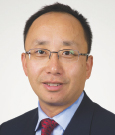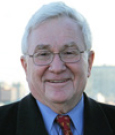Among the highlights at the 12th International Conference of the Society for Integrative Oncology (SIO) was a 1-day joint meeting on acupuncture, oncology, and fascia cosponsored by SIO, the Society for Acupuncture Research, the Fascia Research Society, and the Osher Center for Integrative Medicine. Held on the first day of the 3-day conference, the joint session drew more than 600 attendees and presented findings from both basic and clinical research. The full conference was held November 14–16, 2015, at Harvard Medical School in collaboration with the Dana-Farber Cancer Institute in Boston.
Research Directions
“A number of researchers investigating extracellular matrix connective tissue and lymphatics biology presented innovative data on how the host system may be amenable to manipulation by complementary therapies, such as massage and acupuncture, and lead to improved tissue healing, recovery, and symptom control in patients with cancer,” said Jun J. Mao, MD, MSCE, President of SIO and Chief of the Integrative Medicine Service at Memorial Sloan Kettering Cancer Center in New York. “That research, combined with the numerous clinical studies presented, really stimulated the scientific community to begin generating new hypotheses on how we can increase the mechanistic understanding of therapies such as yoga, massage, and acupuncture on cellular and tissue levels. [Hopefully, this will lead] to more targeted reduction in pain, lymphedema, and fibrosis and contribute to better function, pushing our collective work forward.”
The theme of the conference was Integrative Innovation, emphasizing the personalization of integrative medicine in the delivery of treatments to help patients with cancer achieve better outcomes with fewer treatment side effects. Among the studies presented was Dr. Mao’s randomized study assessing electroacupuncture or gabapentin in the treatment of hot flashes in breast cancer survivors.1 The study participants were randomly assigned to four interventions: electroacupuncture, sham electroacupuncture, gabapentin, or placebo. The study results showed that patients receiving electroacupuncture had the greatest improvement, as measured by a hot flash composite score, followed by patients receiving the sham acupuncture therapy.
“This study found that long-term acupuncture had more sustained benefit and fewer side effects than gabapentin in the treatment of hot flashes. These data can readily be used by patients and clinicians to make personalized decisions on whether to integrate acupuncture into the medical management of hot flashes,” said Dr. Mao.
In all, the 2015 conference presented 137 scientific abstracts (see The Best of SIO on page 23) and attracted more than 350 oncologists, internal medicine physicians, researchers, nurses, integrative medicine practitioners, cancer survivors, and patient advocates from 19 countries. For a third year in a row, SIO received a National Cancer Institute conference grant to fund travel expenses for patient advocates and research trainees.
Countering the Effects of Cancer
The keynote addresses were presented by Herbert Benson, MD, Director Emeritus of the Benson-Henry Institute for Mind Body Medicine and Professor of Mind Body Medicine at Harvard Medical School; Jennifer Ligibel, MD, Assistant Professor in the Department of Medicine at Harvard Medical School and Attending Physician in Adult Oncology at Dana-Farber Cancer Institute; and Claudia Witt, MD, MBA, Chair of Complementary and Integrative Medicine at the University of Zurich. The speakers emphasized the importance of utilizing mind-body medicine, mind-body exercise, and nutrition to counter the effects of cancer and its treatment and how approaches to mind-body medicine differ around the world.
“It was interesting to hear the international perspective from Dr. Witt on how our conception of mind-body therapies is not consistent around the world due to the influence of diverse cultures and medical systems,” said Suzanna Zick, ND, MPH, Immediate Past President of SIO and Associate Research Professor in the Department of Family Medicine at the University of Michigan, Ann Arbor. “It is important for us to keep those differences in mind when we talk about these modalities and what they mean to patients as well as what these differences might mean when comparing study results.”
Growth of Integrative Oncology
Now in its 13th year, the SIO is maturing along with the field of integrative medicine, according to Dr. Mao, although he concedes there are still difficulties that both the Society and the field have to overcome. “The studies and topics presented at this year’s meeting really showed the growth and maturation of integrative oncology, but we still face many challenges, including how to develop a more sustainable program that benefits a large segment of patients, survivors, and caregivers,” said Dr. Mao.
“For example, many of the integrative oncology services we provide are not covered by health insurance and require out-of-pocket payment,” he continued. “Cancer is a very expensive disease, so how do we develop integrative oncology services that are affordable for patients? It is a challenge we have yet to address, but SIO is prepared to meet this challenge.”
Goals for the Future
To address affordability concerns and other challenges and ensure continued growth for SIO, Dr. Mao is focusing on two goals during his tenure as SIO President. One is to increase membership in the Society to advance research and education in integrative oncology. His second goal is to have greater global engagement to tackle the issue of cultural diversity and clinical care delivery among different countries.
“The theme of next year’s conference is Advancing the Global Impact of Integrative Oncology,” said Dr. Mao. “We are beginning to develop and execute a plan to partner with other medical societies outside the United States to evaluate current clinical practices and the state of science in integrative oncology in other countries and to determine how we can collaborate with physicians and scientists around the globe to improve outcomes for patients with cancer. We currently have 450 members from 20 countries, and we are exploring the possibilities of developing chapters in specific countries so we can begin to have more effective collaboration both within specific regions and across regions.” ■
Disclosure: Drs. Mao and Zick reported no potential conflicts of interest.
Reference
1. Mao JJ, Bowman MA, Xie SX, et al: Electroacupuncture versus gabapentin for hot flashes among breast cancer survivors: A randomized placebo-controlled trial. J Clin Oncol 33:3615-3620, 2015.





